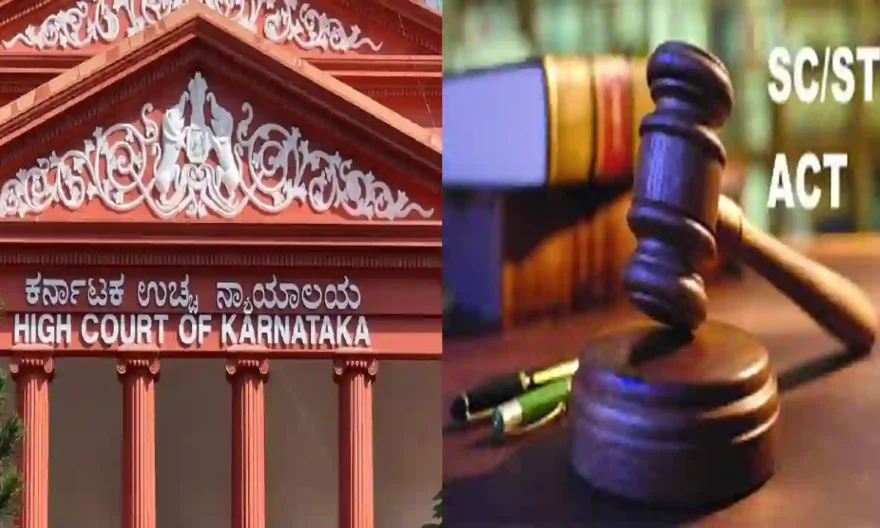
The Karnataka High Court recently held that simply taking the caste name of a person belonging to a Scheduled Caste (SC) or Scheduled Tribe (ST) with no intention of insulting or humiliating them would not constitute an offence under the Scheduled Caste and Scheduled Tribe (Prevention of Atrocities) Amendment Act, 2015 (SC/ST Act).
Justice M Nagaprasanna, a single-judge, reviewed various decisions on the subject and observed that, “If the law laid down by the Apex Court, the co-ordinate Bench of this Court, and even the High Court of Orissa are juxtaposed, it would unmistakably emerge that mere taking the name of the victim’s caste would not make it an offence, unless it is with an intention to insult the person belonging to the said caste.”
The observation was made in an order partially allowing a plea moved by one Shailesh Kumar, who was accused in a FIR filed in 2020. The FIR was filed on the basis of a complaint filed by a woman.
According to the complaint, the complainant’s son and Kumar had played a cricket match together with several others. After her son’s team lost, there were some spats between his team and Kumar. The complainant alleged that her son was taken away and beaten. As a result, the police filed a FIR against Kumar and another individual for allegedly committing crimes punishable under the Indian Penal Code (IPC).
The investigation later revealed that Kumar and others also used foul language against the complainant’s son, and thus offences punishable under the SC/ST Act were added to the case.
The trial court took cognizance of the offences alleged in the charge-sheet under the IPC and the SC/ST Act in January 2021. That order came to be challenged before the High Court.
No abuse was allegedly hurled, according to Kumar’s counsel, and the allegations came from a game of cricket that had gone wrong the day before.
After reviewing the chargesheet, Justice Nagaprasanna noted that it only stated that the name of the complainant’s son’s caste was taken while hurling abuse at each other at the end of a cricket match.
The judge said in his order that, “Except for this statement, there is no whisper about the petitioner hurling abuse taking the name of the complainant’s caste intentionally to insult or humiliate by making castiest remarks.”
Further, citing Sections 3(1)(r) and (s) of the SC/ST Act, the Court stated that the soul of the provision is intention. Therefore, the insult and intimidation must be intended to humiliate a member of the Scheduled Caste or Scheduled Tribe.
Allowing further proceedings with respect to the offences under the Act to continue would be an abuse of the legal process, the Court opined, despite the fact that this was conspicuously absent in the case at hand.
Concerning the offences punishable under the IPC, the Court stated that there was unquestionably material from the complaint until the charge sheet for offences punishable under the same.
The Court ordered that, “There is ample evidence in the statements and the narration in the summary of the charge-sheet albeit prima facie to bring home those offences. It is up to the petitioner to come clean on the IPC offences. “Because the offences are grave in nature, there can be no interference insofar as offences under the IPC are concerned.”




